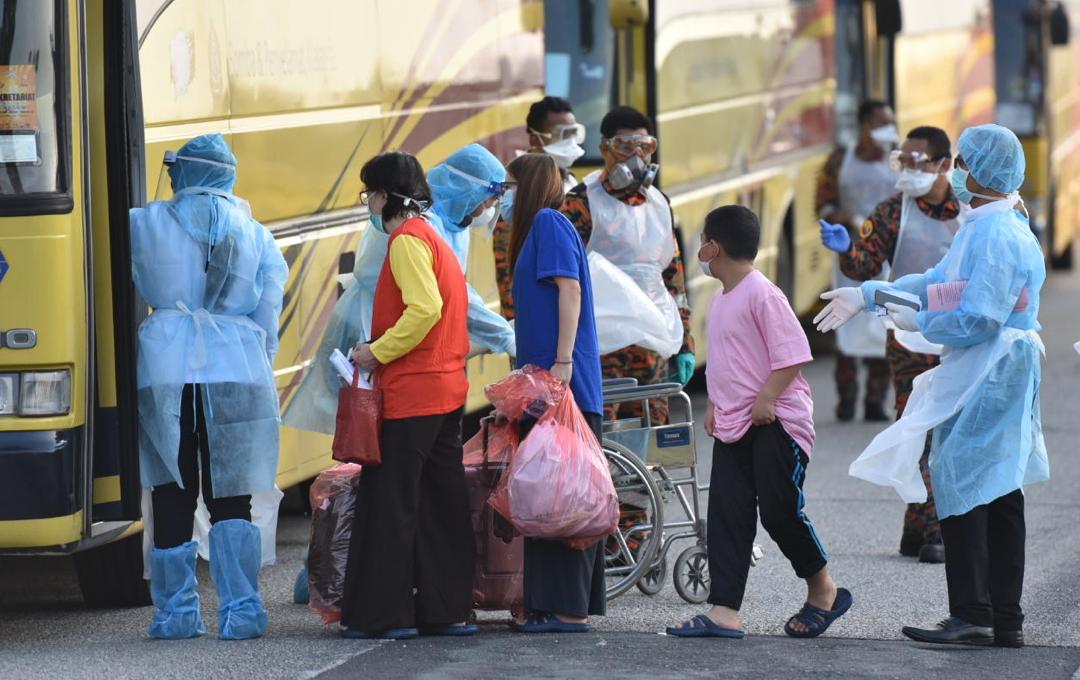KUALA LUMPUR, Feb 26 — Passengers aboard a cruise ship that docked in Cambodia last week are at little to no risk of carrying the novel coronavirus, despite one passenger testing positive for the novel coronavirus in Malaysia.
They also no longer need to isolate themselves upon returning to America, the Centers for Disease Control and Prevention (CDC), the United States’ leading national public health institute, said.
The New York Times (NYT) quoted the federal agency on Sunday as saying that tests on nearly 1,500 passengers, mostly conducted by Cambodian health officials, had turned up no other infections.
As such, Westerdam passengers now no longer require testing for Covid-19, the paper quoted a CDC spokesman as confirming.
The CDC previously urged Westerdam passengers to restrict public activities for 14 days.
“While we were not surprised by these results, we were very pleased to receive this confirmation,” Holland America, the owner of the ship, said in a letter to Westerdam passengers as reported by the NYT.
“CDC does not recommend isolation or quarantine for guests returning home from Westerdam,” Holland America’s letter added.
However, the agency has since double-tracked on its purported earlier remarks that an 83-year-old Westerdam passenger from America was a “false-positive” for Covid-19, after testing positive, and then negative again.
Malaysian officials over the weekend announced that the woman has since twice tested negative for Covid-19 after being treated in Malaysia, despite testing positive, twice, upon arriving in the country.
Cambodia said she was originally cleared of Covid-19 after the Holland America vessel docked at Sihanoukville port in Cambodia last week, following its government’s decision to allow the ship to enter the port on humanitarian grounds.
The CDC’s false-positive announcement had prompted Cambodian Prime Minister Hun Sen to accuse Malaysia of shoddy lab work and to demand an apology from Putrajaya for the “damage done to Cambodia’s reputation”.
“If I were the Malaysian PM, I would remove the health minister for being neglectful and irresponsible,” Hun Sen reportedly said in a statement on Saturday.
The NYT said the CDC agency now clarified that it had no direct evidence that the test result was a false-positive.
The paper also quoted experts who argued that coronavirus testing is problematic.
Dr Jennifer Nuzzo, an epidemiologist at Johns Hopkins Center for Health Security, said questions have been raised about the test’s sensitivity, claiming that a diagnostic test produced by the CDC and sent to state health departments was “flawed”.
“If the CDC, a world renowned scientific institution, is having trouble, it’s highly likely others are having trouble as well,” Dr Nuzzo reportedly said.
People who test negative may turn positive a few days later depending on when during the incubation period a sample is taken, and very few Americans are being tested — less than 1,000 — the paper further claimed.
The NYT also quoted another expert who said the positive-to-negative change in test results is expected in a patient recovering from the illness.
“I’m thinking they must have some information from the testing laboratory in Malaysia that would give the CDC confidence in saying yes, that was a false-positive result,” said Dr William Schaffner, an infectious disease specialist at Vanderbilt University.
“Obviously, if it was a true positive, you would keep all those people in self-monitoring.”








